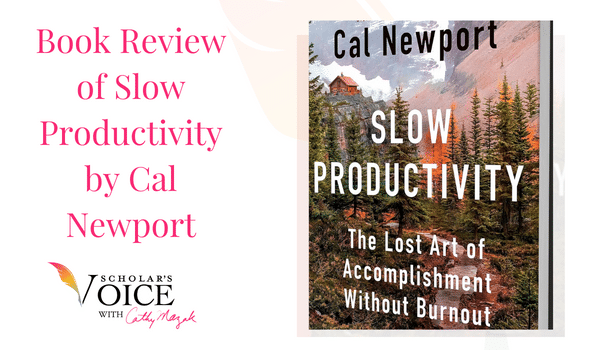Should I Write Over Break?

The culture in academia sets us up to see breaks as a time to catch up or get ahead. But should you spend break time writing? My answer as a writing coach might surprise you.
MORE DETAILS
As the semester reaches a crescendo, tasks pile up and it seems like there’s just not enough time to do it all. It gets very tempting to push things into break time. After all, you don’t have teaching tasks during break, so that’s the perfect time to finish those annoying tasks, right? Wrong. Break time should be just that, a break!
My First Suggestion for Break
Take a break! Seriously, if there is any way at all that you can do it, I urge you to completely disconnect from academia over your break. You need that restorative pause in order to come back with a fresh, energized brain that is ready to think creatively. So if you can, take your whole break off. If you feel like you just have to get something done, consider following my 3 week framework.
“Disconnecting from your work is vital to not burning out.”
My 3 Week Framework for Break
If you feel like you have to get something done over break, don’t make it those undesirable, annoying tasks that you didn’t want to deal with during the semester. Follow this plan and come back rested and with something accomplished that moves the needle for you.
- Week 1: Completely disconnect from work. Do not go in to the office, do not check email, do not read that latest article on your project. Set an auto-responder on your phone and email and STEP AWAY. Do only those things that make you feel rested and clear your mind.
- Weeks 2-3: Do a sprint on one project until it’s done. First, choose a project. Be sure to choose something that you are able to finish, and that is satisfying for you and your career. Second, set up your sprint schedule. Make a list of tasks to do for the project, block off 1-3 hours a day to do them, and keep to your schedule. Check out this blog post for more information on how to do a writing sprint.
Some Final Encouragement
If you can, disconnect and choose deliberate rest for the whole break. If you can’t do the whole break, take 3-7 days at an absolute minimum! Be sure to PLAN for rest and put up solid boundaries around this time. Remember, this is good for you and it’s good for your work.
“Taking those rests leads to better work. It’s not taking away time that you could be working, it’s investing in your work to take a break.”
Interested in more community-based ways to improve your writing? Want to go up for tenure with confidence and without overwhelm? Consider applying for my writing accelerator program, Amplify. The program is a small cohort of tenure-track women encouraging and learning from each other, with my support and writing advice. Learn more here.
Connect with me:
RELATED PODCASTS
Stay current in Academic Publishing
Subscribe to our newsletter:
In the Pipeline
writing tips, publishing trends, reading recomendations, free workshops





